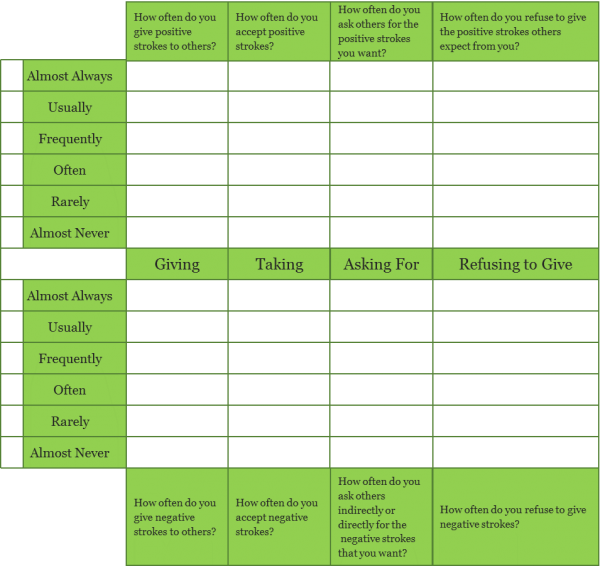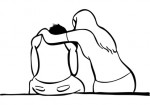Are you “Stroking” anyone today?

The term “Strokes” originates from the psychological theory of Transactional Analysis created by Eric Berne and others. Transactional Analysis is essentially a theory about communication and relationships. Strokes are a way of describing how we acknowledge people or give feedback which can be in the form of physical strokes, such as a hug, but often come in different forms such as:
VERBAL – “Hello how are you?”
NON VERBAL – A smile / frown
POSITIVE – “I like you “
NEGATIVE – “Stupid!”
ZERO – Ignoring someone
PLASTIC – not genuine – sometimes called “marshmellow” compliments (as they melt quickly)
CROOKED – Has a sting in the tail… “If you did more of ? you’d be great”
UNCONDITIONAL – “I hate you when….”
CONDITIONAL – “I love you when……”
Everyday when we are kind to others and kind to ourselves we are carrying out an important role. We are adding to someone’s emotional bank known as a “Stroke Bank” Over a day we receive and give many “strokes” some positive and some negative. Negative strokes have a greater impact on us and we may need extra positive strokes to stay in credit.
It is thought negative strokes could have up to 8 times more impact on an individual than a positive stroke.
And each day we have a “stroke balance”. When it is positive and in credit we feel good about ourselves. A positive stroke bank is good for our self-esteem. However if we receive negative strokes it has the opposite impact.
So what’s your stroke balance today? Try this quick stroke profile analysis.

How can you make a difference to your own and other people’s Stroke Bank Balance? Here are some tips.
- give strokes when we have them to give as often as you can
- ask for strokes when we want them
- accept strokes if we want them
- reject manipulative strokes
- give ourselves positive strokes
Self- Reflection
So how is your stroke balance?
How many positive strokes are you giving to others?
And more important
How can you make a difference to your stroke balance?
How can you make a positive difference to other people’s stroke account?
I love this story by Claude Steiner “A Warm Fuzzy Tale” which is a great, fun example of the Stroke theory. Enjoy!
If you want to be better at self- care or making other feel great then contact me for 121 coaching
| Print article | This entry was posted by Denise on March 24, 2018 at 6:02 pm, and is filed under Personal Development. Follow any responses to this post through RSS 2.0. Both comments and pings are currently closed. |
Comments are closed.






